How Much Water Should I Drink To Lose Weight? 2 Water Goals
The trick is to find the sweet spot to make this beverage support your weight loss goals.
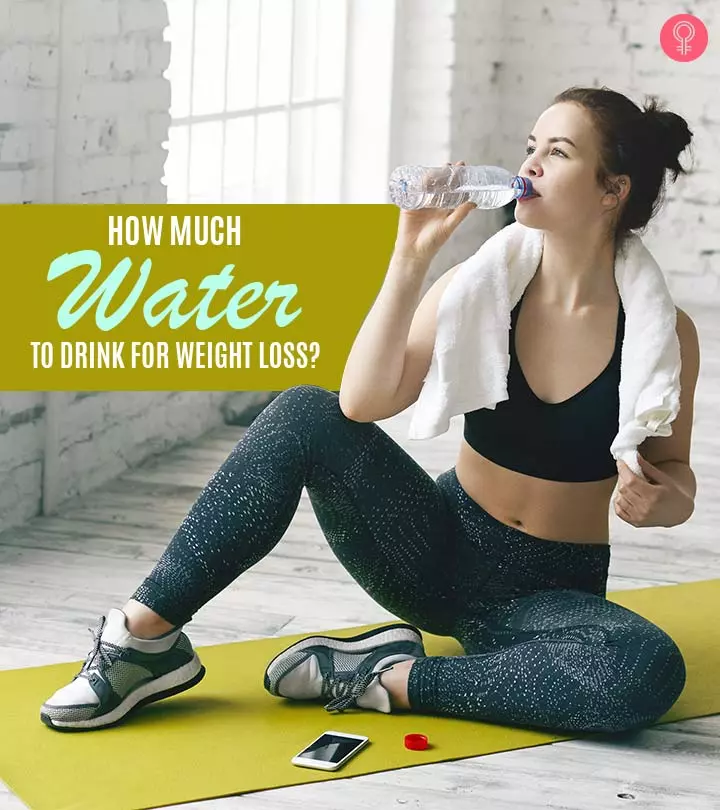
Image: ShutterStock
Ever wondered how much water you should drink to lose weight? Research scientists have shown that drinking adequate water improves satiety, reduces calorie consumption, flushes out toxins, and boosts metabolism. But the idea of drinking more water is relative. Continue reading to learn how much water you should drink a day to lose weight.
Does Drinking Water Help You Lose Weight?
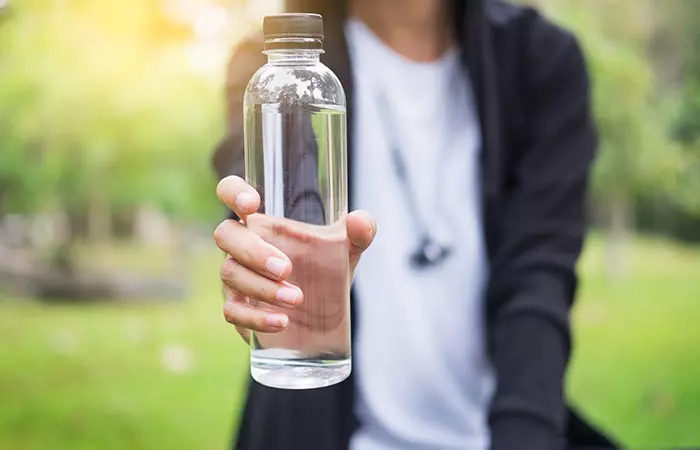
Yes, drinking water aids weight loss.
A cross-sectional study was conducted in Spain on 358 healthy volunteers, 121 males (33.8%) and 237 females (66.2%). The obesity prevalence was 12.2% and significantly higher in males compared to females (23.1% and 6.8%, respectively). The water intake from food and other sources was found to be higher in females than in males, which helped with lower obesity levels.
Research has confirmed that water helps increase thermogenesisi The technique of heat transfer in warm-blooded animals that occurs between the adipose tissue and skeletal muscle. (1). It increases heat production in the body, which essentially means your metabolism gets boosted.
A Korean study states that water consumption before a meal prevents excess food consumption (2).
Another study by American scientists found that premeali Literally, “before a meal”, it is an event that occurs before the consumption of food or drinks. water intake resulted in 2 kg greater weight loss and 44% more weight loss over 12 weeks in subjects as compared to people who did not consume premeal water (3).
Water also increases lipolysisi The process by which fats are broken down in fatty tissues by enzymes and water and fatty acids are released in the body. or breaks down fat, which is then used as a source of fuel (4).
Replacing diet beverages with water decreases BMI (BMI determines whether you are underweight, overweight, or obese) and improves carbohydrate metabolism and insulin sensitivity (5).
 Quick Tip
Quick TipLast, but not the least, water helps flush out toxins, thereby reducing toxin build-up and inflammation in the body.
Main Idea: Drinking water can help you lose weight. It works by reducing food intake, increasing satiety, improving metabolism and insulin sensitivity, decreasing BMI, and stimulating fat breakdown.
Key Takeaways
- Drinking water helps in weight loss by boosting thermogenesis, enhancing metabolism, lowering BMI, and promoting fat breakdown.
- It also actively lowers calorie consumption and increases insulin sensitivity.
- If you work out vigorously and lead an active life, remember that the daily limit of water intake is up to 2200 mL for women and 3000 mL for men.
Can Water Help Burn Calories?

Drinking water helps increase thermogenesis, which helps burn calories. However, drinking water has to be complemented with a low-calorie diet and exercise for weight control and loss.
Does Drinking Water Affect Appetite?
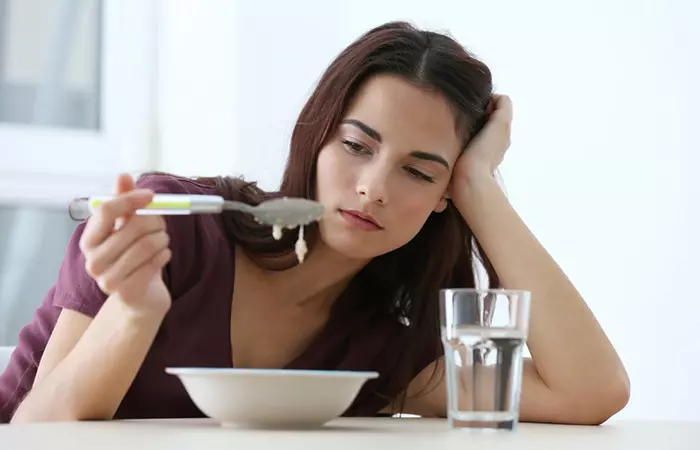
Yes, drinking water does reduce appetite and improves satiety. It can, therefore, help in weight management. Most of the time, thirst is mistaken as hunger. Instead of drinking water, we end up consuming more calories. So, it is always best to drink water 20-30 minutes before and after a meal.
Main Idea: Water increases thermogenesis and helps burn calories. You will also feel less hungry and more satiated if you drink water 20-30 minutes before and after a meal.
Rena, a blogger, increased her daily water intake and shared the results on her personal blog: “I find myself snacking less when I actually drink enough water (i).” She adds, “I remember hearing somewhere that a good rule of thumb to know how much you should be drinking is to take your body weight, divide it in half, and drink that many ounces.”
How much water should you drink per day to stimulate more calorie burn, fat breakdown, and increased satiety and insulin sensitivity? Let’s find out in the next section.
How Much Water Should You Drink In A Day For Weight Loss?
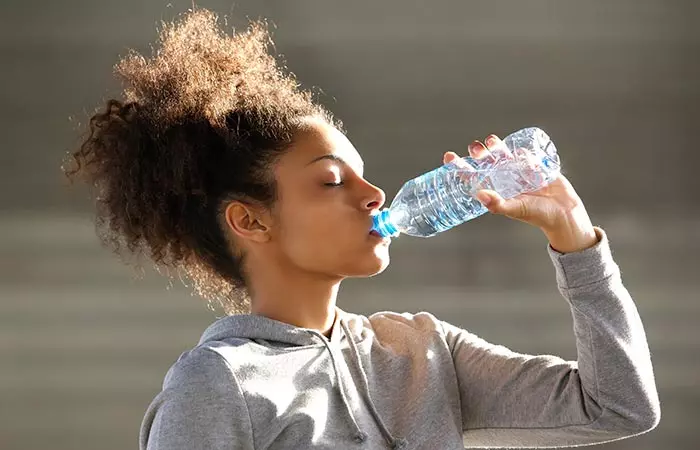
Drink 2200 mL (women) or 3000 mL (men) of water per day if you do not work out (6). But if you workout regularly for 60 minutes, your daily water intake should be more. Drink 900 mL of water or sip on 150-300 mL of water every 15-20 minutes while exercising (7), (8).
 Quick Tip
Quick TipYou also have to keep the weather of a particular area in mind. Dry or humid areas can cause more water loss through sweating. This means you must keep sipping on at least 150-200 mL of water every 15 minutes if you sweat a lot.
So, on an average, consume 4-5 liters (women) or 6-7 liters (men) of water for weight loss (if you participate in vigorous workouts regularly and tend to sweat a lot).
Also, water isn’t the only factor. Keeping your cells hydrated and consuming a healthy diet is important to support the detoxification and weight loss process. If the right mineral balance is not present in your cells, more fluid can be lost. The ideal amount is 500ml/d (6).
Adequate electrolytes are needed for cellular detoxification, including weight loss. However, unless there is an extensive workout regimen, eating mineral-rich hydrating foods throughout the day should suffice. You can consume the following foods:
- Celery
- Watermelon
- Cucumber
- Kiwi
- Bell peppers
- Citrus fruit
- Carrots
- Pineapple
- Iceberg lettuce
- Radishes
Note:
If you are wondering how to lose weight fast at home, keeping the above-listed things regarding diet and adequate water intake in mind can be key to achieving your goals. If you are planning on engaging in extreme fitness or activity, it is advisable to talk with a professional, such as a registered nutritionist or your primary health care professional, about increasing electrolytei Electrically charged minerals in blood or body fluids that affect the amount of water in the body and the acidity of the blood. doses.
Main Idea: Consume 2200 mL (women) or 3000 mL (men) of water per day for general health. As exercise increases, consider introducing hydrating foods and coconut water in your diet. Be mindful of electrolyte balance with extensive exercise.
As you have seen, there are certain things you need to be careful of while drinking water to lose weight, like the amount of water, frequency of drinking, etc. Therefore, let us look at the right way to drink water in the next section.
Best Way To Drink Water To Lose Weight
There is no special way to drink water to lose weight. However, you can follow the tips given below to ensure you stay hydrated:
- Drink water prior to meals to prevent overeating and decrease your appetite.
- Drink water throughout the day rather than drinking an excess amount in a single go.
- Rehydrate whenever you are exposed to hot weather or physical exertion.
- Set reminders to ensure you do not miss hydrating yourself. Use an app or a smart watch to set reminders to drink water regularly.
- Keep a reusable water bottle with you throughout the day to track your intake and stay hydrated.
- Add fruits, herbs, or a splash of juice to your water to make it more appealing and refreshing.
- Reduce your intake of sugary drinks like soda, juice, and energy drinks.
Now, let’s take a quick look at the benefits of drinking enough water per day.
Benefits Of Drinking Enough Water
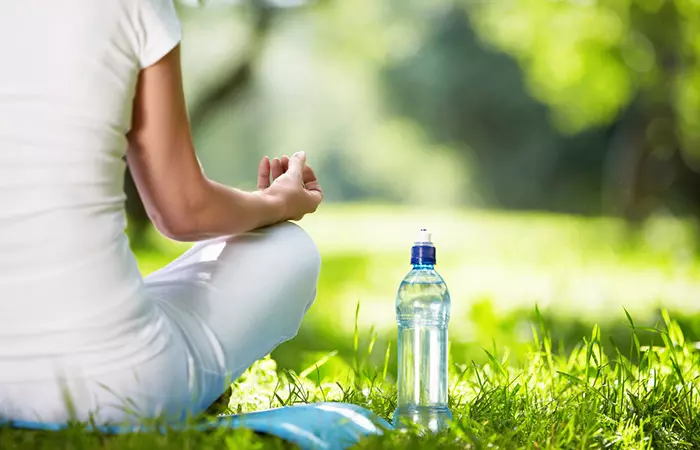
- Water helps prevent non-communicable diseases (9).
- Water helps lower toxicity in the body.
- Drinking adequate water helps reduce stress.
- Water boosts brain function and helps improve mood (10).
- Water helps improve skin health (11).
- Water, along with dietary fiber, helps improve bowel movement (12).
Main Idea: Keep yourself hydrated with water to get rid of toxins in your body and maintain good cell and brain functions.
Infographic: Top 6 Benefits Of Drinking Plenty Of Water
The fundamental principle of health and nutrition is to drink enough water to stay hydrated. Our bodies may last for weeks without food but only a few days without water. Given that our bodies contain roughly 60% water and that dehydration can impact our health, consuming enough water is imperative. Check out the infographic below for more information on the advantages of drinking enough water. Illustration: StyleCraze Design Team
While staying hydrated is important overall, drinking enough water is also crucial to healthy weight loss. How much water should you drink a day to lose weight is an important question to make your weight loss routine effective. Water acts as a catalyst in burning fat and boosting your metabolism in turn helping you feel light and active. Drinking the adequate amount of water everyday would help you see a visible difference in your weight, complexion, and overall health as well. Additionally, if you want to add extra ingredients to water to enhance its health benefits and support your weight loss journey, you can consider drinking detox drinks for weight loss.
Frequently Asked Questions
Is it okay to drink cold water for weight loss?
The temperature of the water does not matter when it comes to weight loss. It is critical to drink plenty of water when trying to lose weight. Additionally, you also need to lead a healthy lifestyle, track your calorie intake, and do adequate physical activity to reduce your body weight.
Is it true that drinking water before bed can lead to weight loss?
Yes. Healthy habits like drinking a glass of water before bed may encourage your body to burn more calories while you sleep.
Can drinking too little water lead to weight gain?
Drinking too little water causes your hydration levels to drop and your body to become dehydrated, resulting in a loss of energy and fatigue. In order to recover that energy, you usually eat more, which ultimately results in weight gain.
Curious about the role of water in weight loss? Uncover the secrets of proper hydration and learn how much water you should drink daily to support your weight loss journey. Watch this informative video now!
Personal Experience: Source
StyleCraze's articles are interwoven with authentic personal narratives that provide depth and resonance to our content. Below are the sources of the personal accounts referenced in this article.
i. Wellness Wednesday: The Importance of Waterhttps://anordinaryhousewife.com/the-importance-of-water/
References
Articles on StyleCraze are backed by verified information from peer-reviewed and academic research papers, reputed organizations, research institutions, and medical associations to ensure accuracy and relevance. Read our editorial policy to learn more.
- “Effect of ‘Water Induced Thermogenesis’ on Body Weight, Body Mass Index and Body Composition of Overweight Subjects” Journal of Clinical and Diagnostic Research, National Institutes of Health.
- “Effect of Pre-meal Water Consumption on Energy Intake and Satiety in Non-obese Young Adults” Clinical Nutrition Research, National Institutes of Health.
- “Water Consumption Increases Weight Loss During a Hypocaloric Diet Intervention in Middle-aged and Older adults” Obesity, National Institutes of Health.
- “Increased Hydration Can Be Associated with Weight Loss” Frontiers in Nutrition, National Institutes of Health.
- “Effects of replacing diet beverages with water on weight loss and weight maintenance: 18-month follow-up, randomized clinical trial.” International Journal of Obesity, National Institutes of Health.
- “How much water do we really need to drink?” Nederlands tijdschrift voor geneeskunde, National Institutes of Health.
- “Fluid consumption, exercise, and cognitive performance” Biology of Sport, National Institutes of Health.
- “Water and electrolyte requirements for exercise.” Clinics in Sports Medicine, National Institutes of Health.
- “Water, hydration, and health.” Nutrition Reviews, National Institutes of Health.
- “Effect of Water Supplementation on Cognitive Performances and Mood among Male College Students in Cangzhou, China: Study Protocol of a Randomized Controlled Trial” International Journal of Environmental Research and Public Health, National Institutes of Health.
- “Does dietary fluid intake affect skin hydration in healthy humans? A systematic literature review.” Skin Research and Technology, National Institutes of Health.
- “Water supplementation enhances the effect of high-fiber diet on stool frequency and laxative consumption in adult patients with functional constipation.” Hepato-gastroenterology, National Institutes of Health.
- “Effect of water consumption on weight loss: a systematic review” Nutricon Hospitalaria, US National Library Of Medicine.
Read full bio of Jess Wharton
Read full bio of Ravi Teja Tadimalla
Read full bio of Sindhu Koganti






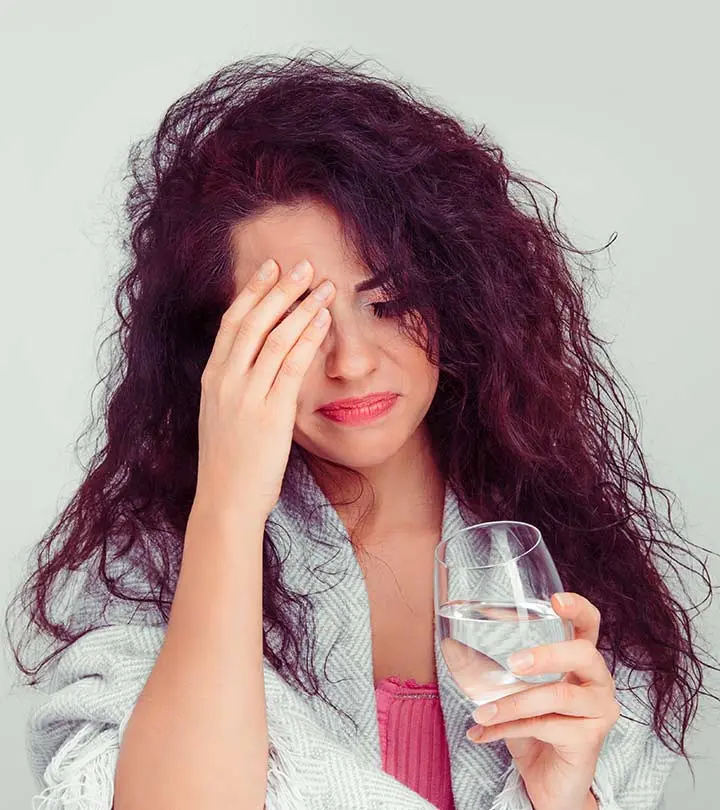
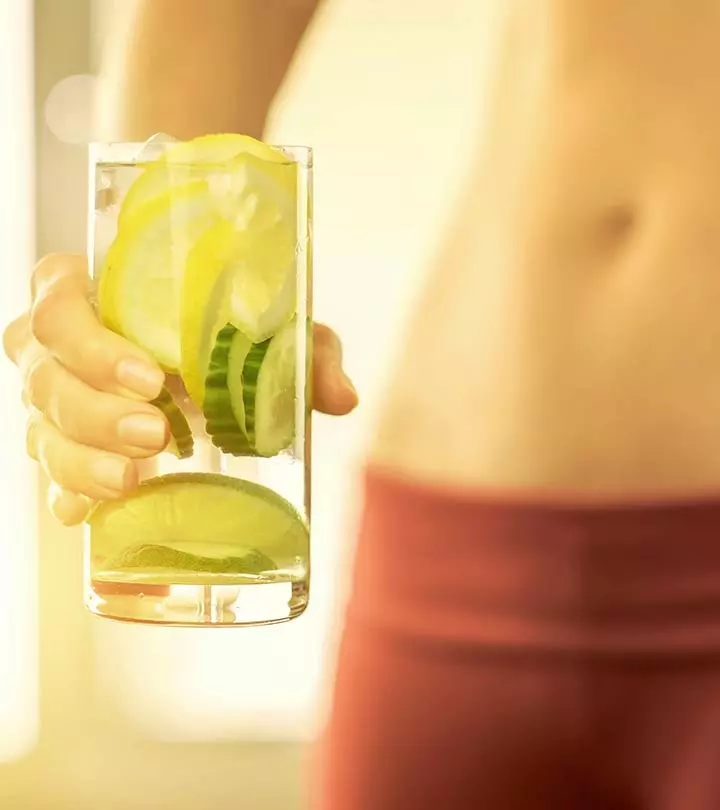


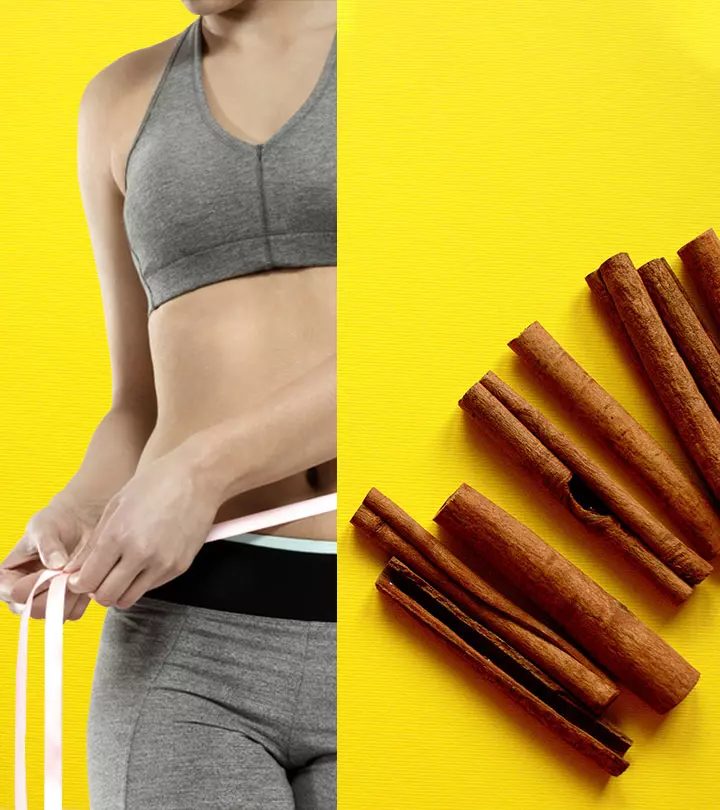
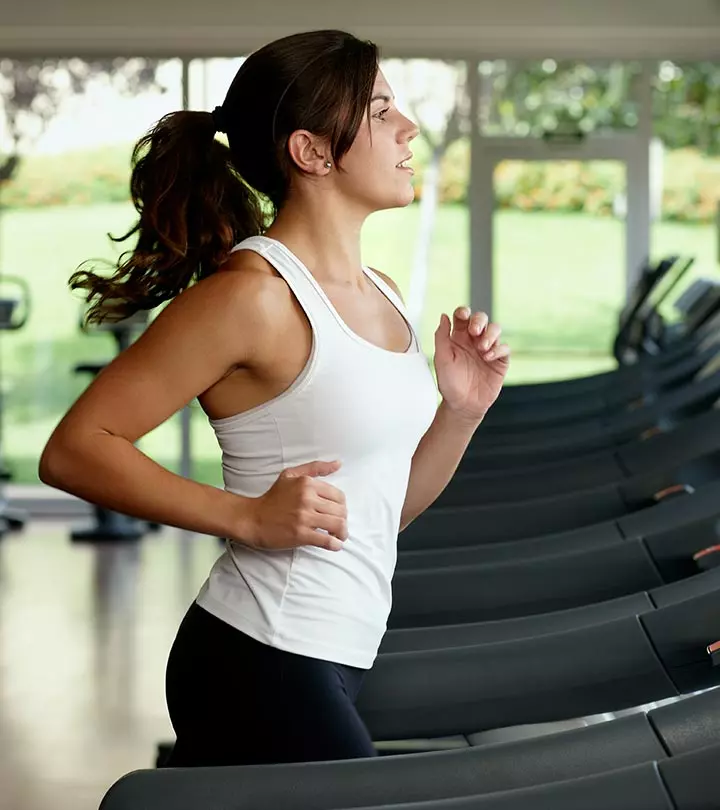
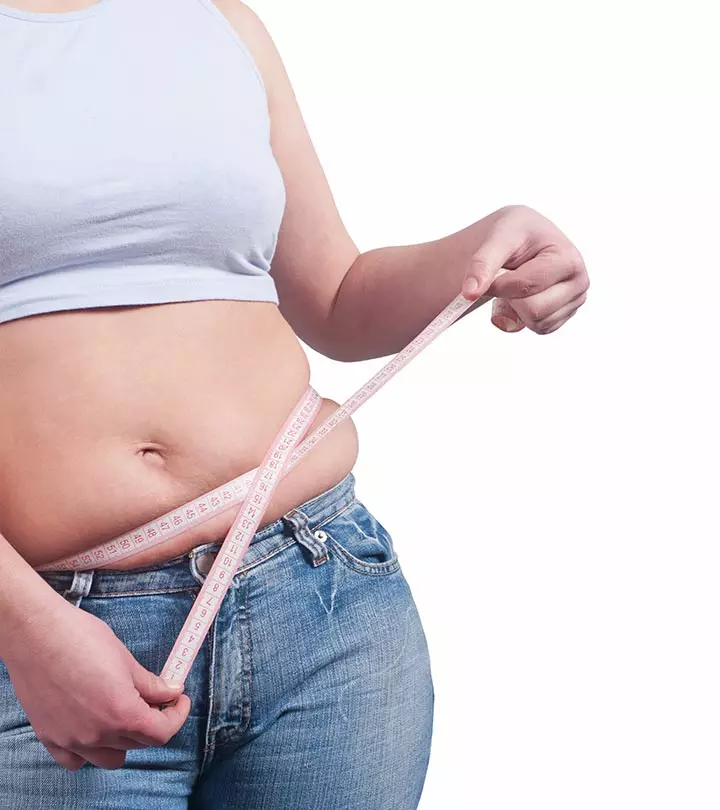
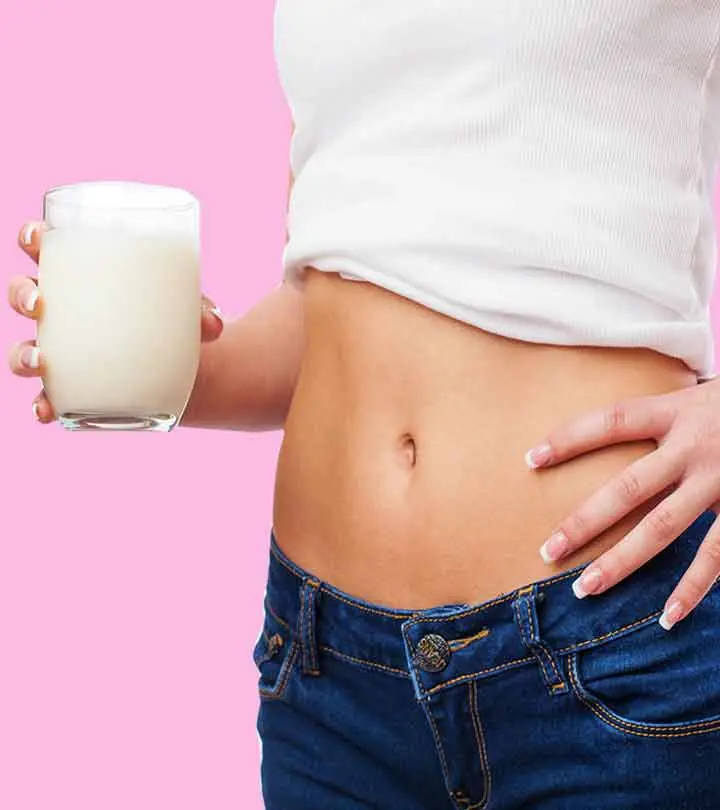
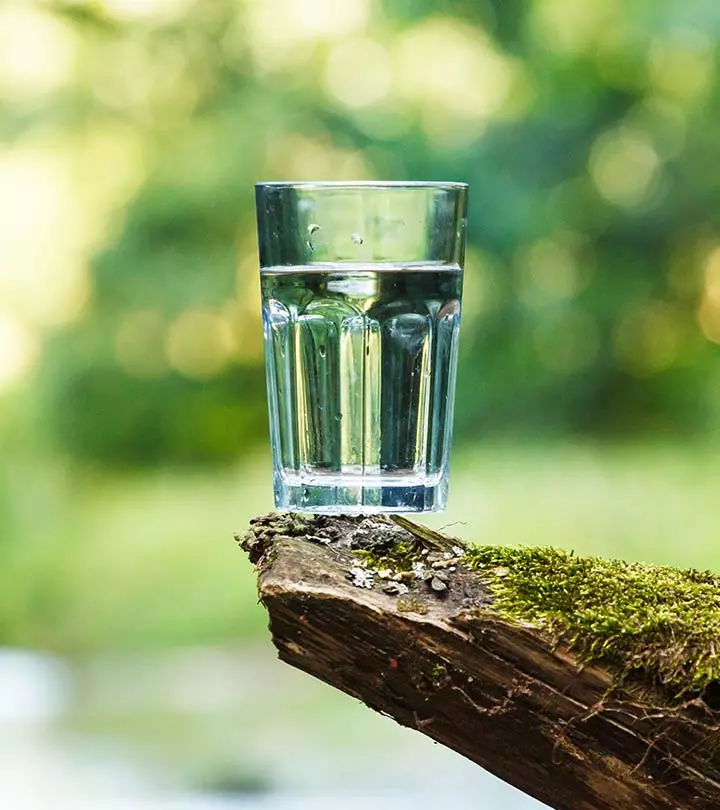
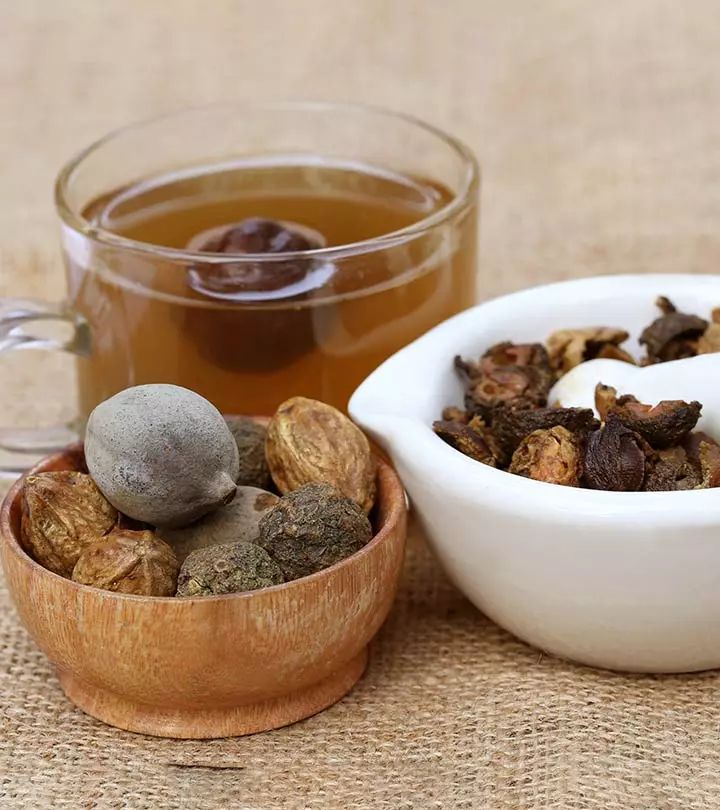
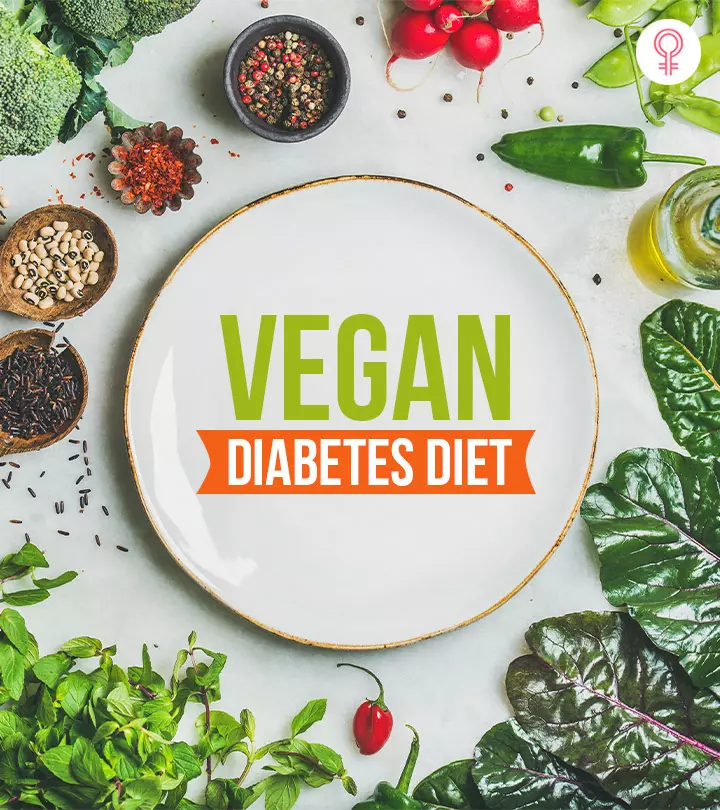

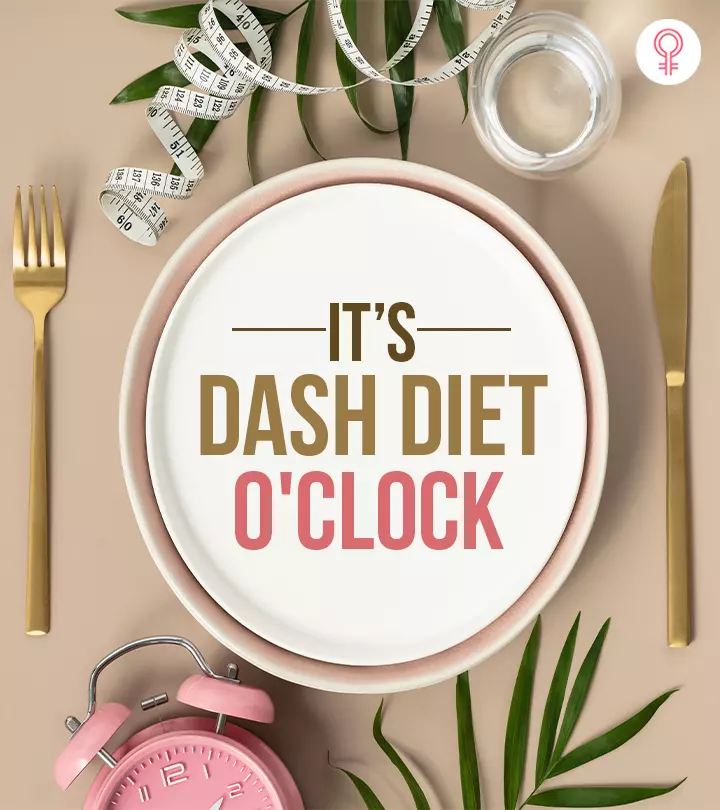

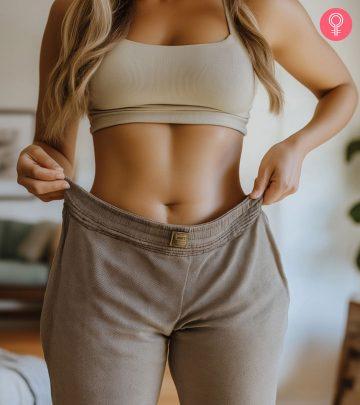

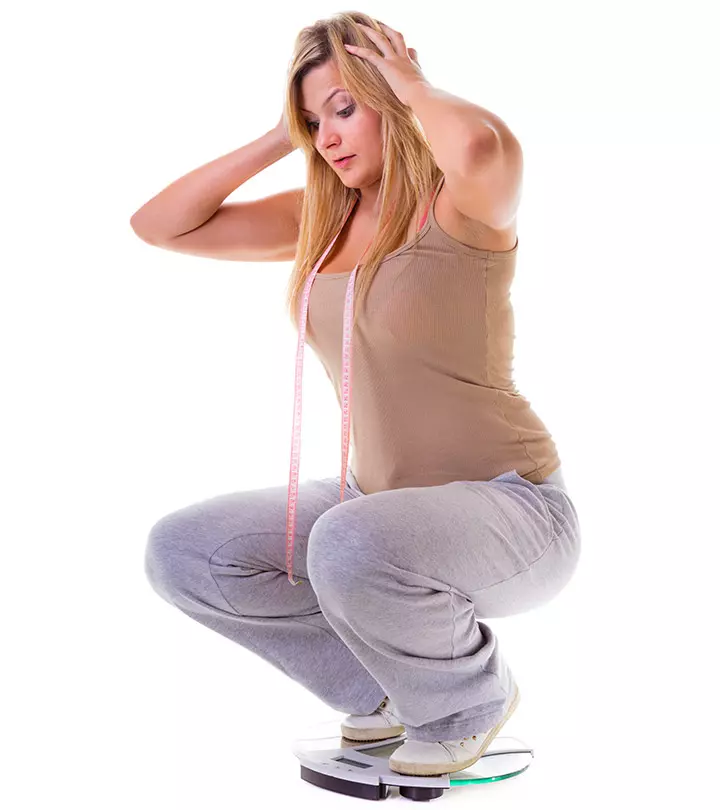

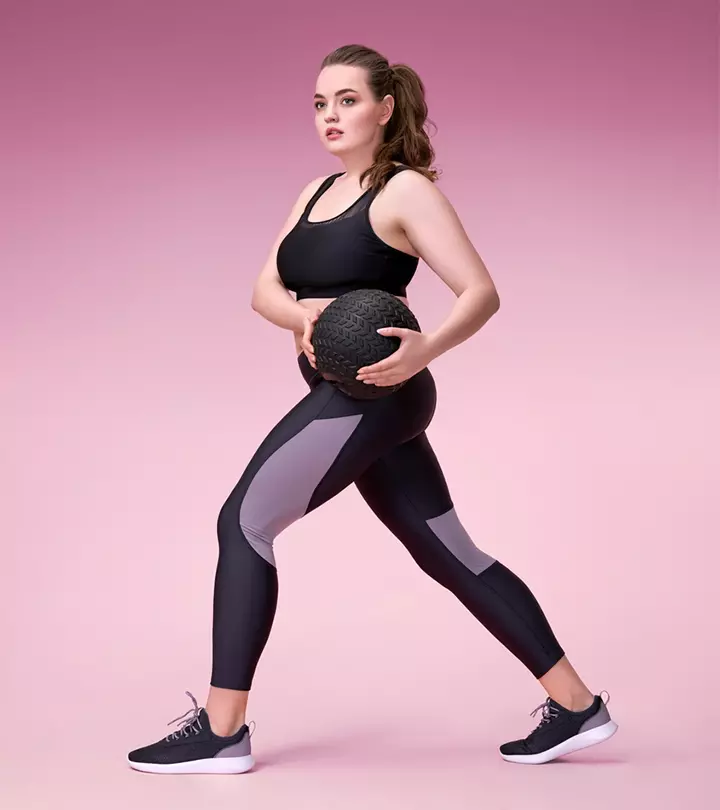

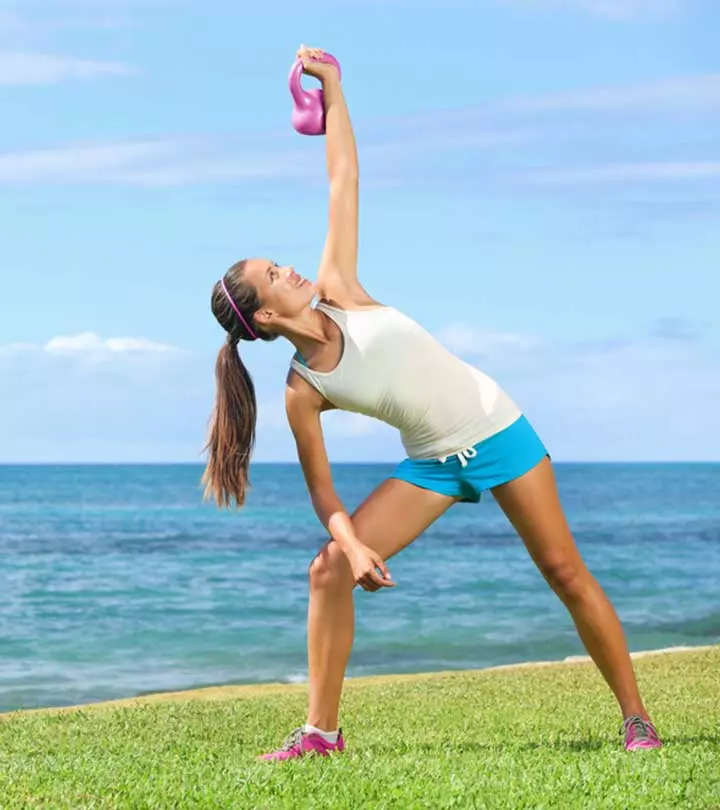
Community Experiences
Join the conversation and become a part of our empowering community! Share your stories, experiences, and insights to connect with other beauty, lifestyle, and health enthusiasts.